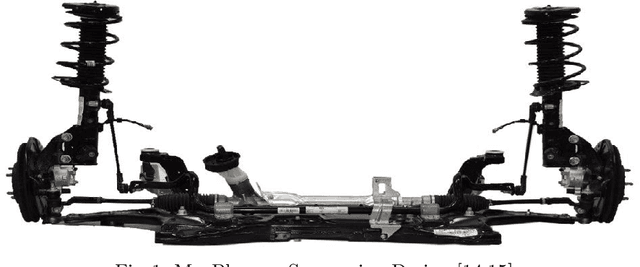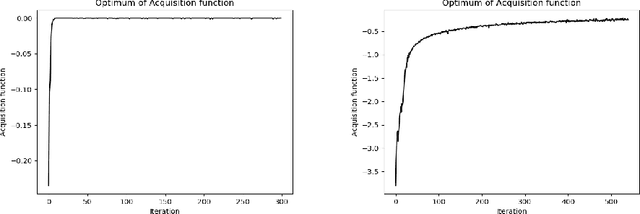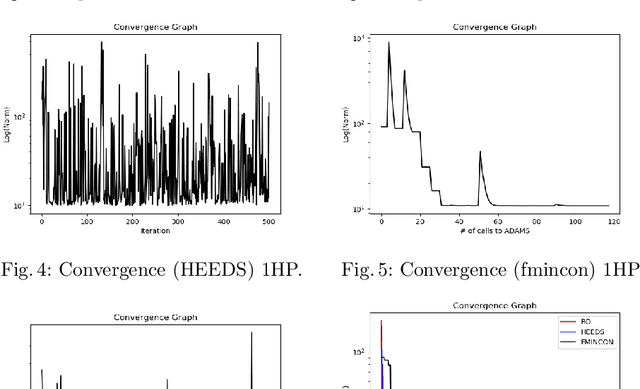Designing MacPherson Suspension Architectures using Bayesian Optimization
Paper and Code
Jun 17, 2022



Engineering design is traditionally performed by hand: an expert makes design proposals based on past experience, and these proposals are then tested for compliance with certain target specifications. Testing for compliance is performed first by computer simulation using what is called a discipline model. Such a model can be implemented by a finite element analysis, multibody systems approach, etc. Designs passing this simulation are then considered for physical prototyping. The overall process may take months, and is a significant cost in practice. We have developed a Bayesian optimization system for partially automating this process by directly optimizing compliance with the target specification with respect to the design parameters. The proposed method is a general framework for computing a generalized inverse of a high-dimensional non-linear function that does not require e.g. gradient information, which is often unavailable from discipline models. We furthermore develop a two-tier convergence criterion based on (i) convergence to a solution optimally satisfying all specified design criteria, or (ii) convergence to a minimum-norm solution. We demonstrate the proposed approach on a vehicle chassis design problem motivated by an industry setting using a state-of-the-art commercial discipline model. We show that the proposed approach is general, scalable, and efficient, and that the novel convergence criteria can be implemented straightforwardly based on existing concepts and subroutines in popular Bayesian optimization software packages.
 Add to Chrome
Add to Chrome Add to Firefox
Add to Firefox Add to Edge
Add to Edge